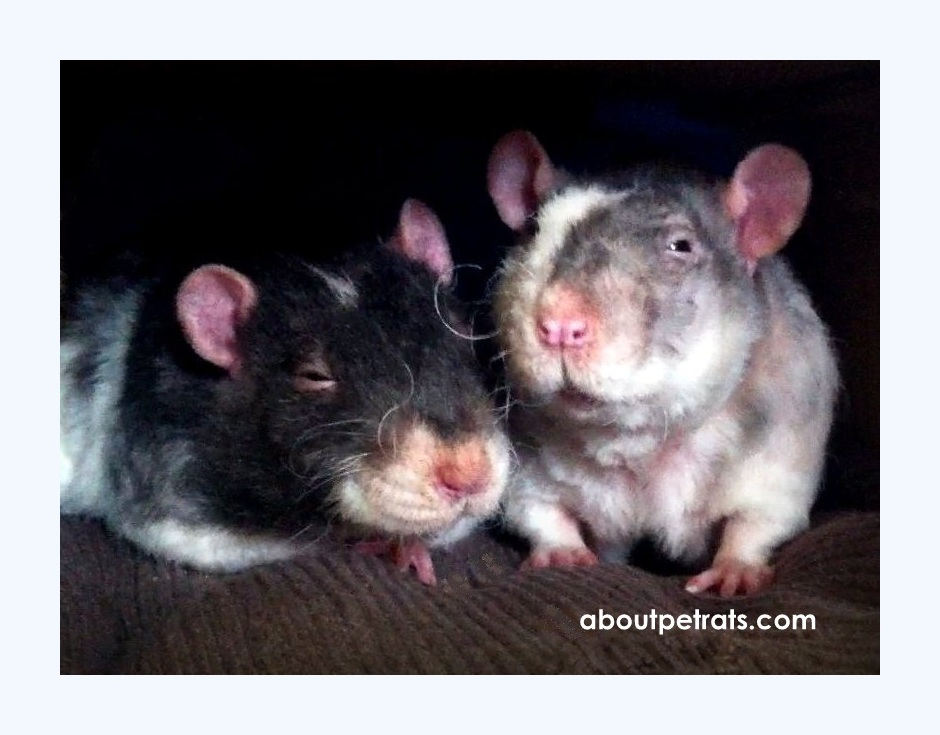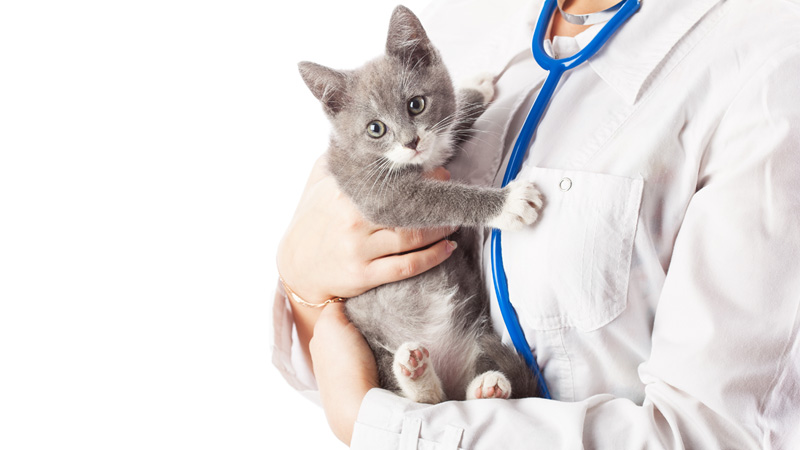
If you want a job that has a positive impact on animals, a career in animal care might be right for you. Animal careers are not only rewarding but they also pay well. You can find a job in the animal industry as a day- or full-time employee.
There are many options for positions, and which ones are best suited to you will depend on what your skills and interests are. A variety of animal care jobs are available, including those that work at a veterinarian hospital or helping with the birth of animals. You might even be required to ensure the safety of research animals by working in a laboratory.
One of the most important responsibilities for the average animal care worker is to provide a healthy environment for the animals that you are taking care of. This may involve monitoring the animals' behavior, feeding them healthy foods and cleaning their enclosures. They also ensure that the animals are getting enough exercise to keep them happy.

Volunteering at local animal shelters is a great opportunity to help animals. Shelters may have volunteer programs or are open for new employees. You may also be able to apply for a job with ASPCA. The staff members are responsible for caring for and rescuing animals in crisis. As a part of the organization, you can receive tuition reimbursement, extended family medical leave, and other professional development opportunities.
Another good way to make a difference for animals is to start your own business. You could start your own dog grooming service if you have a passion for dogs. While you won't be making as much as professionals, you can still make a little money on your own. You can also open a pet supply shop or start a business selling toys for pets.
Good animal care jobs will allow you to be hands-on and meet interesting people. You will need to be fit for the job. You may consider another job, even if it is not something you are naturally good at.
If you're not interested in working with animals, you might consider a technical career as veterinarian. Because it may include both exotic and domestic animals, this is one of the most lucrative animal jobs. To become a veterinarian, you must have a bachelor's in animal science, pass the state licensing exam, then get a postdoctoral doctor. Veterinarians are trained to treat medical conditions and injuries, but can also provide preventive care.

Although some careers are more technical than other, all these professions make a huge difference for animals. With the proper education, you can pursue a rewarding and satisfying career.
FAQ
What should I do before buying an exotic animal?
You should consider several factors before buying an exotic pet. First, decide if you intend to keep the pet as a pet or sell it. If you want to keep it as an animal pet, you need to ensure that there is enough space. Also, you need to determine how much time and effort it will take. You will need to take time to look after an animal. But, they are worth it.
If you are looking to sell your animal, you will need to find someone willing to buy it. You must ensure that the person purchasing your animal knows all about taking care of them. Make sure you don't feed your pet too much. This could cause health problems later on.
If you are considering exotic pets, you should ensure that you thoroughly research them. Numerous websites offer information on different types of pets. Be wary of scams.
How much should I pay for a pet?
One good rule of thumb: Budget around $200-$300 per Month.
However, this varies depending on where you live. For example, in New York City, you'd probably spend about $350 per month.
In rural areas, however you may only need $100 per calendar month.
You need to make sure that your pet has quality toys and collars.
It is worth considering purchasing a crate to protect your pet. This will keep him safe during transport.
How to train your pet
It is important to be consistent when training your dog or cat. You must make sure you are consistent in how you treat them. They will start to distrust you if your behavior is unkind. They might start to believe that everyone is mean.
If you don't treat them with respect, they will not know what else to expect. This could lead them to be anxious around other people.
Positive reinforcement is the best way for a dog or cat to learn. When you reward them for doing something right, they will want to repeat this behavior.
Punishing them when they do something wrong will associate bad behaviors with punishment rather than rewards.
Good behavior should be reinforced with treats, such as food and toys. You should also praise your behavior whenever you can.
Clickers can help you train your pet. Clicking allows you to tap on a button and tell your pet that it was successful.
This method works because animals are able to understand that clicking signifies "good job".
Show your pet the trick first. You should then ask your pet to perform the trick and reward him.
Give him praise when he does it right. Don't be too proud. Do not praise him more than one time.
It's also important that you set limits. For example, don't allow your pet to jump up on guests. Don't let him bite strangers.
You must always supervise your pet so that he doesn’t injure himself.
How often do I need to groom my dog every day?
Grooming your pet dog is very important. Grooming your dog is important to keep his coat clean and healthy.
Brushing your dog twice a week is a must. After each meal, brush your dog.
Your dog's fur can be cleaned by brushing it. This will get rid of dirt and hair. Brushing his teeth can make him look younger.
Also, make sure to clean his ears.
What is pet insurance?
Pet Insurance provides financial protection for pets when they are sick or injured. It also covers routine care such as vaccinations or spaying/neutering.
Additional benefits include emergency treatment in the event your pet becomes ill or is involved in an accident.
There are two types of Pet Insurance:
-
Catastrophic: This type of insurance pays medical expenses if your cat sustains serious injuries.
-
Non-catastrophic – This type covers routine costs for veterinary care, including vaccinations, microchips or spays/neuters.
Some companies offer both non-catastrophic and catastrophic coverage. Others only offer one.
These costs will be covered by a monthly premium. The amount you spend on your pet’s care will determine the cost.
The cost of this insurance varies depending on what company you choose. So shop around before buying.
Some companies offer discounts if you purchase more than one policy.
You can transfer an existing pet insurance plan from another company to a new one.
If you choose not to purchase any pet insurance, you will need to make all payments yourself.
There are still many ways to save money. Ask your veterinarian for discounts.
You may be disregarded by your pet if he sees you frequently.
Instead of spending money on a pet, you could adopt one from an animal shelter.
No matter which type of insurance you choose, it is important to read all the fine print.
This will show you the exact value of your coverage. Contact the insurer immediately if you are unsure.
How long should a pet dog stay inside?
Dogs are naturally curious. This curiosity must be satisfied. They can become destructive if they don't have an outlet. This can lead them to become destructive and cause property damage, as well as injury to other people.
When outside, dogs should be on a leash. The leash keeps them from getting into trouble while allowing them to explore their environment safely.
He will be bored and uninterested if you keep him indoors all day. He will be more interested in chewing furniture than other objects. His nails could grow too long and cause him to have health issues.
These negative consequences can be avoided by allowing your dog to run free at all times. Take him out for a walk, take him for a drive in the car, and/or to the park.
This will make him feel more energetic and provide him with something to do.
What are the responsibilities for pet owners?
A pet owner must be devoted to their pet. They must ensure that their pet has all the basic needs met, including shelter, water, and food.
They must teach them proper behavior. The pet owner must not neglect or abuse it.
He should also be responsible enough take care of it, and clean up after himself.
Statistics
- Pet insurance helps pay for your pet's medical care, with many policies covering up to 90 percent of your vet bills. (money.com)
- Here's a sobering reality: when you add up vaccinations, health exams, heartworm medications, litter, collars and leashes, food, and grooming, you can expect a bill of at least $1,000 a year, according to SSPCA. (bustle.com)
- It is estimated that the average cost per year of owning a cat or dog is about $1,000. (sspca.org)
- For example, if your policy has a 90% reimbursement rate and you've already met your deductible, your insurer would pay you 90% of the amount you paid the vet, as long as you're still below the coverage limits of your policy. (usnews.com)
- Monthly costs are for a one-year-old female mixed-breed dog and an under one-year-old male domestic shorthair cat, respectively, in excellent health residing in Texas, with a $500 annual deductible, $5,000 annual benefit limit, and 90% reimbursement rate. (usnews.com)
External Links
How To
How to choose the best name for your pet
Choosing a name for your pet is one of the most important decisions you'll make when adopting a new animal into your home. You want your pet's name to reflect their personality.
Consider how other people may refer to them. If you are going to use their name during conversation, for instance. You should also consider how you would like to be called. What do you prefer, for example, "dog" or pet?
Here are some tips that will help you get started.
-
Select a name to fit your dog's breed. Look up the names associated to the breed, if you have a good idea of what it is (e.g. Labradoodle). Or ask someone who knows dogs well to suggest a name based on the breed.
-
Take into account the meaning behind the name. Some breeds are named for people or places, others are nicknames. For example, the Labrador Retriever named "Rover" because he was always running!
-
Think about how you'd like to be called. Are you more comfortable calling your dog "dog" or "pet?" Are you more likely to call your dog "Puppy" than "Buddy?"
-
Be sure to include the name of the owner. Although it's a good idea to name your dog with your last name, don't forget to include the names of your family members. Your dog could grow up to become a member of your family.
-
Remember that pets can have multiple names. For example, a cat might go by several names depending on where she lives. You might call her "Kitty Cat" home, but she might be "Molly" on the road with her friends. This is especially true for cats who live outside. They may choose to name themselves after the environment in which they live.
-
Be creative There are no rules that say you have to follow a certain naming convention. Make sure you choose something memorable and unique.
-
Be sure to check that your chosen name does not already belong in the hands of another person or organization. That way, you won't accidentally steal someone else's identity!
-
Finally, remember that choosing a name for your pet isn't an exact science. Sometimes it takes time to determine whether a name is right for your dog. Keep trying until you find the right name!